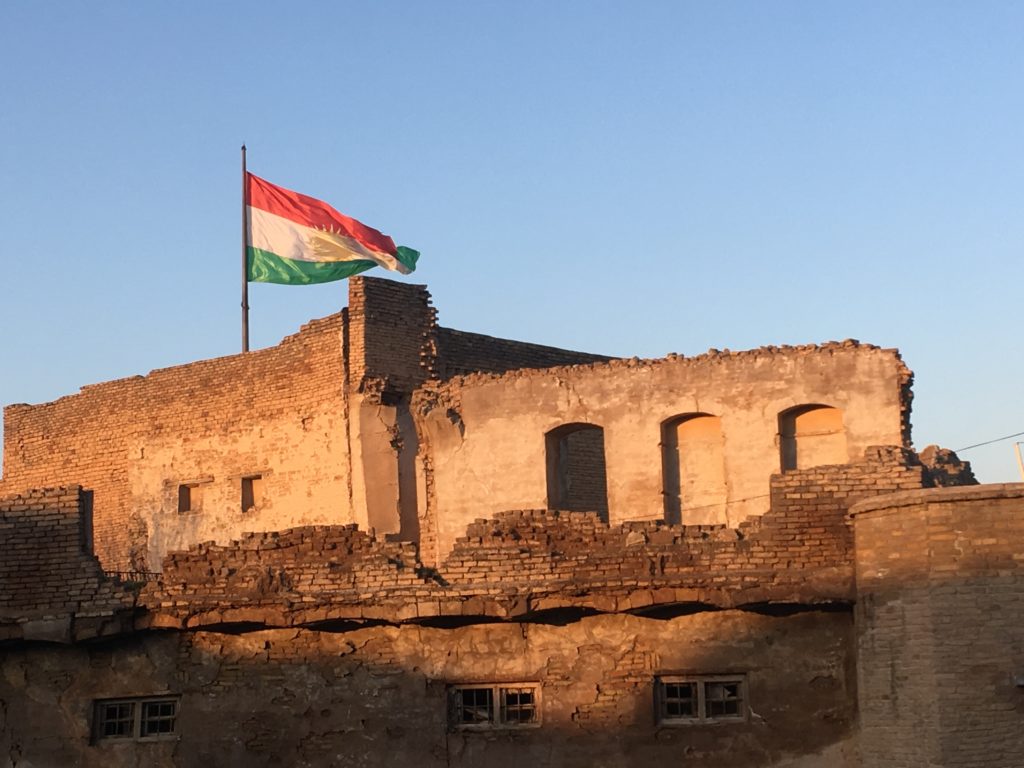
©2019 Derek Henry Flood
Erbil- I arrived in the capital of Iraq’s semi-autonomous Kurdistan Regional Government (KRG) from Beirut as yet another plot point in my journey toward Syria. I made it a point today to visit the city’s magnificent citadel just before it closes at sundown. The citadel is built atop a massive tell, or ancient, man-made mound dating back millennia. Known as Arbela in antiquity, claims have been made that Erbil is the oldest continually inhabited human settlement in existence. I don’t think most journos that pass through here give all that much thought to this town itself as it has played a role of transport and logistical hub for perilous, onward destinations. Erbil is stable, relatively secure, and quiet, lacking the appeal that the seductive chaos of nearby Mosul and Kirkuk tempt curious outsiders with. I too am mostly caught up in that vortex. But my early passion was and remains archaeology. The stone carved lore of the Near East (a dated term denoting this region’s geographic relationship with Europe as the world’s center) with its vaunted empires led by flamboyant warrior -kings puts today’s conflicts in perspective if one takes a moment to pause and reflect upon the grand narrative of civilisation as a whole.
I realised as the MEA flight was about to touch down that 2019 marks my tenth year working in and walking the streets of this city. I first turned up here trying to research a difficult story at the time on the Partiya Jiyana Azad a Kurdistanê (PJAK), an Iranian Kurdish insurgent group that were launching cross border attacks from the Qandil Mountains into northwestern Iran hitting the Pasdaran (IRGC) in Kordestan and West Azerbaijan provinces. After a lot of waiting around and a clandestine trip into the mountains, I was able to interview an Iraq-based PJAK commander called Agiri Rojhilat. Rojhilat, obviously a nom de guerre of the commander I spoke with a decade ago, means “eastern Kurdistan” in the same manner that the term Rojava in northern Syria signifies “western Kurdistan.” Since then I’ve been returning here to cover different angles of the wider struggle for Kurdish identity across the region. These days I’m focused more on Rojava. Unfortunately for Iran’s restless Kurds very little news seeps out of Rojhilat other than what is reported by state news agencies and culture-specific news outlets.
Now ten years on I will look into what Syria’s Kurds and their Arab allies will be doing as the security dynamic in north and east Syria shifts to the next phase of the war. I’ve seen some reporting as of late describing the war in the past tense in the wake of the Moscow and Tehran-backed regime’s massive territorial gains that came at great human cost. The regime is also allowing some Western journos into Damascus in an attempt to display a degree of normalcy. Syria is by no means on a path to peace. Even if the guns briefly appear to have gone quiet on the front(s), with so many players jockeying in the same contested, under-governed space, we are simply in a lull before the next phase of the conflict begins.
At least the citadel here in Erbil is still standing.